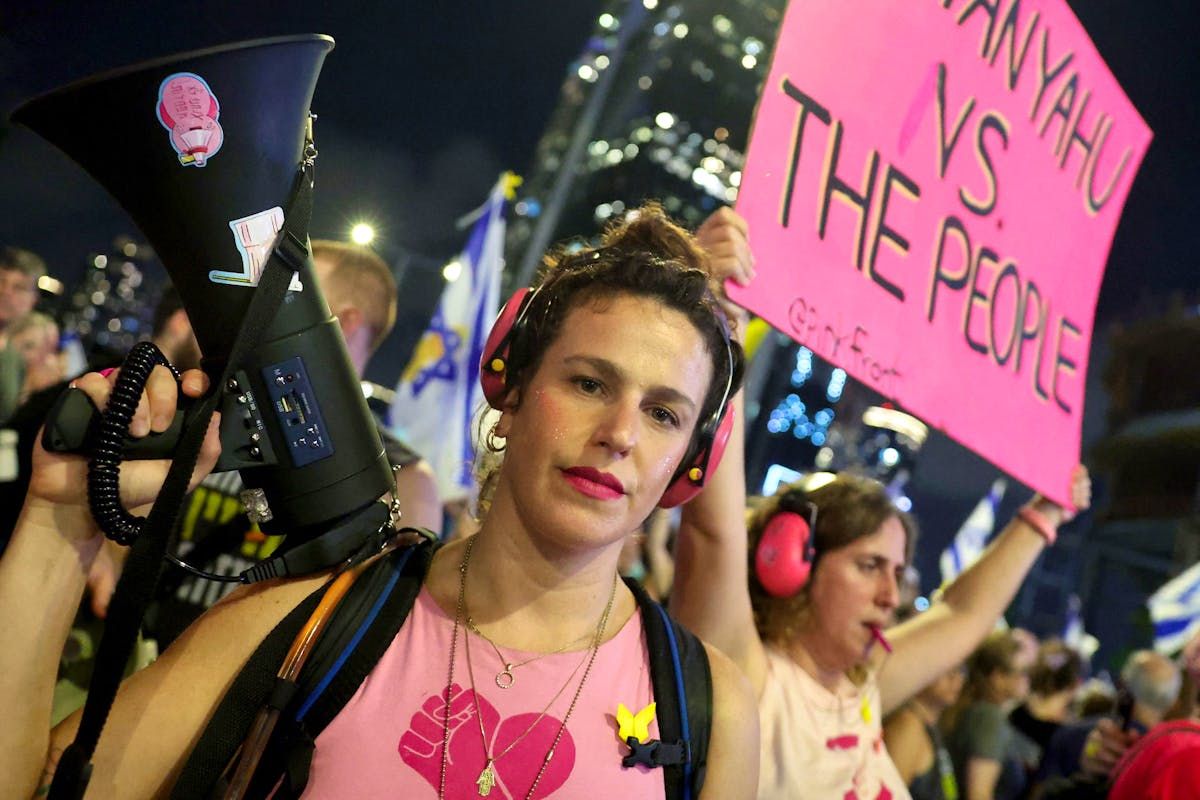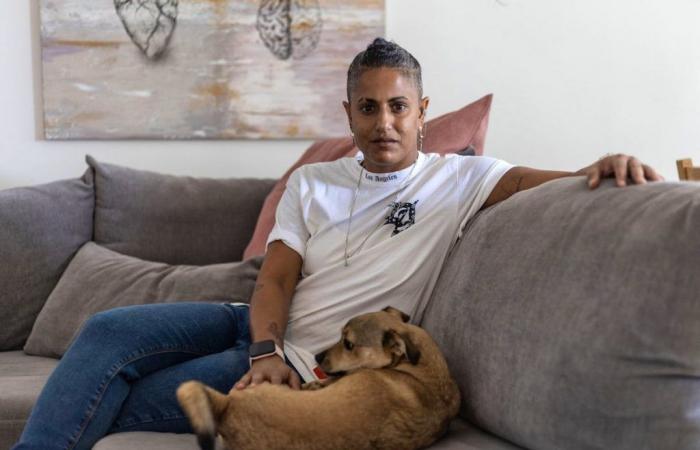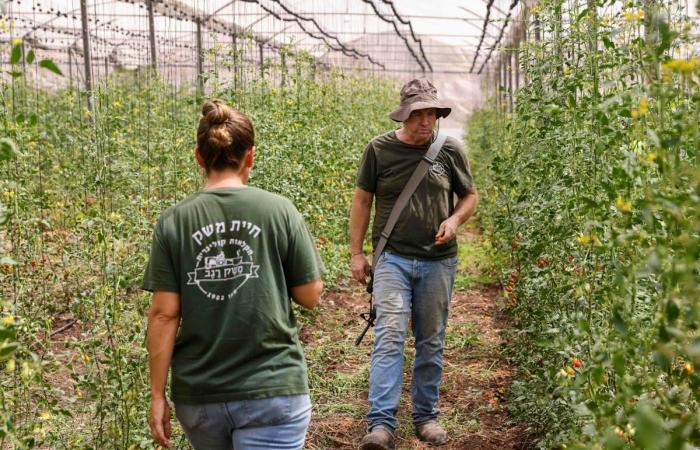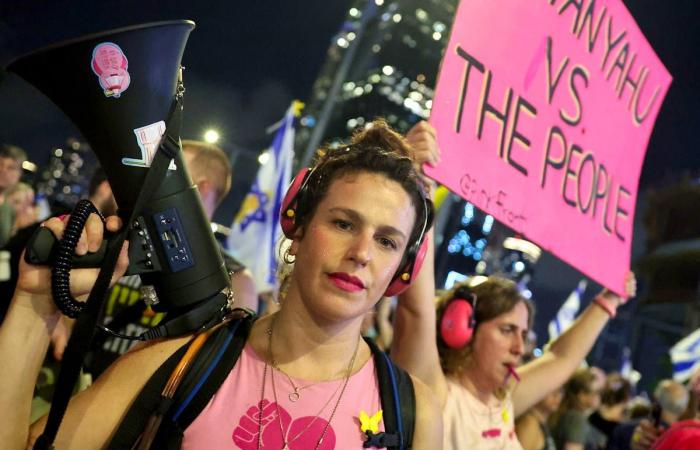Nitsan Peeri had managed to escape from the Nova music festival, where 364 people were killed.
AFP
On October 7, 2023, Hamas fighters infiltrated from the Gaza Strip launched a bloody attack in southern Israel, causing shock in the country and sparking the ongoing war between Israel and the Palestinian Islamist movement. As the first anniversary of the start of hostilities approaches, AFP spoke to three Israelis — a survivor, a reservist and an activist — to understand how this war has affected them.
“Nightly Nightmares”
“I haven’t digested everything yet and I’m still disconnected,” says Nitsan Peeri, 33, about her harrowing experience fleeing the Hamas attack at the Nova music festival she was attending. .
She fled by car with two friends when rockets began falling on the festival site on the edge of the Gaza Strip at dawn on October 7, without realizing that Hamas commandos were were also heading towards them. According to official Israeli data, at least 364 people were killed at the festival on October 7.
Since that fateful day and the twelve hours it took her to get home, sometimes leaving the road to avoid danger, Nitsan Peeri says she has struggled with “loneliness, grief and nighttime nightmares.”
Nitsan Peeri and her fiancée, with whom she lived, separated after October 7. She also closed her hair salon for months, being unable to work. She explained that she had to face “periods of crisis, feeling on edge, irritable, sad”.
To try to return to normal life, Nitsan Peeri says she is doing “as many activities as possible”, surfing twice a week and hoping to find stability, both emotionally and professionally.
“We want security”
Reserve colonel, Erez Regev was taking care of a farm before being mobilized.
AFP
As a reserve colonel in the infantry, Erez Regev was mobilized from the first days of the war to fight, leaving his wife Yaël to take care of his farm, his vegetable store and his restaurant . “For the first four months, we didn’t even go home,” the 46-year-old father of five told AFP.
Its date and mango plantations and its vegetable greenhouse in the northern Syrian Golan occupied by Israel since 1967 require constant monitoring. While he is at the front, vast agricultural lands representing an investment of “hundreds of thousands of shekels” occupy his mind “very busy with the military campaign and the fighting. There everything is dramatic, destiny and human life,” he says.
When he returns home on leave for a few days, he says he can’t sleep “because my guys are fighting.” “You live in two worlds and deal with a very difficult gap; on both sides there are important things that affect you,” he said, adding that this was the case for many reservists in his unit.
“Ultimately, I want to go back to the tomato greenhouses, take my child in the morning to pick mangoes,” adds Erez Regev. But he sees the war against the Palestinian Islamist movement Hamas as necessary to bring the stability he needs for his business. The war is “already very long (…), but we want security,” he emphasizes. Erez Regev wants to make sure he can “plant tomatoes” and be “there in two months to pick them.”
“Things have gotten worse”

Kalanit Sharon is co-founder of a collective that opposes Netanyahu’s government.
AFP
“Nothing has changed. Things have just gotten worse,” Kalanit Sharon says of Israeli policy since October 7. Co-founder of the Pink Front, a political collective which has opposed the government of Israeli Prime Minister Benjamin Netanyahu since 2020, this 33-year-old artist is a faithful supporter of the major demonstrations organized several times a week in Tel Aviv for a year to demand from the Israeli government an agreement that would guarantee the return of the hostages from Gaza, and the resignation of Netanyahu.
On October 7, his collective helped people displaced by the Hamas attack in southern Israel, finding them shelter and food. Two weeks later, the members of the Pink Front returned to the streets with their pink outfits, their pink flags and the pink drums with which they incite the crowds to sing several times a week.
“A lot of people are leaving the country today,” said Kalanit Sharon, “and I understand them. It’s difficult to live here, to feel all this pain all the time and to stay alive (…), but I don’t think we have any other choice.”
(afp)








